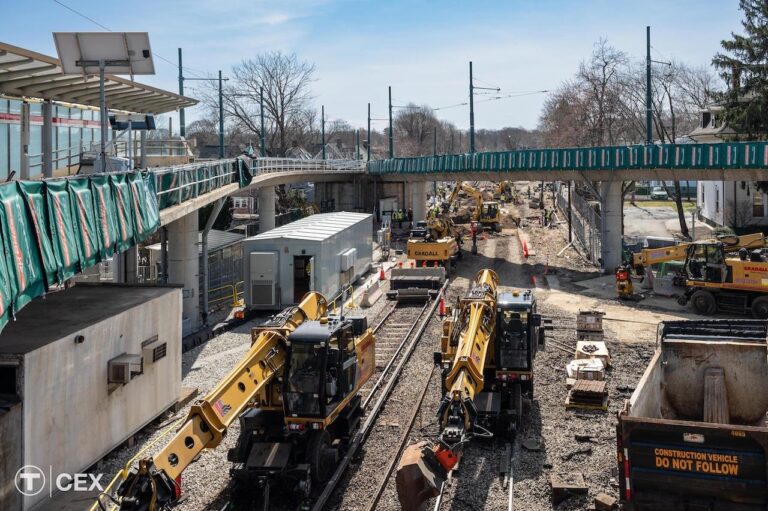The Massachusetts Bay Transportation Authority (MBTA) Board has unanimously approved an ambitious $9.8 billion capital spending plan for fiscal years 2026 through 2030. This comprehensive investment roadmap aims to modernize Greater Boston’s transit system with key upgrades including new vehicles, enhanced accessibility, climate resilience measures, and critical infrastructure overhauls.The five-year plan represents a strategic commitment to improving the reliability and sustainability of the region’s public transportation network, building on previous initiatives to create a more efficient future for riders across the MBTA system[2][3].
Table of Contents
- MBTA Board Endorses Ambitious Investment to Modernize Transit Infrastructure
- Focus on Safety Upgrades and Accessibility Improvements Drives Capital Plan
- Funding Allocation Targets Expansion of Green Line and Commuter Rail Services
- Recommendations Emphasize Sustainability and Technology Integration for Future Growth
- Final Thoughts
MBTA Board Endorses Ambitious Investment to Modernize Transit Infrastructure
The MBTA Board has greenlit a transformative $9.8 billion capital spending plan designed to propel the region’s transit system into a new era of reliability and efficiency. This historic investment prioritizes critical upgrades across multiple domains,addressing decades of underfunding and positioning the transit authority to meet future ridership demand.Key projects include system-wide signal upgrades, fleet modernization, and station accessibility improvements, ensuring smoother commutes and enhanced safety for millions of riders.
Among the bold initiatives outlined are:
- Replacement of aging rolling stock with the latest technology to improve fuel efficiency and passenger comfort
- Expansion and modernization of commuter rail infrastructure, including upgraded tracks and bridges to reduce delays
- Dedicated funding for sustainability efforts to reduce environmental impact and support electrification goals
- Enhanced amenities and accessibility features at key transit hubs to foster a more inclusive transportation network
These targeted investments promise to enhance daily operations and lay the groundwork for future expansions, signaling a bold commitment to advancing Massachusetts’ public transportation landscape.
Focus on Safety Upgrades and Accessibility Improvements Drives Capital Plan
The MBTA’s new capital spending plan allocates a significant portion of the $9.8 billion budget towards enhancing system safety and increasing accessibility for all riders. This strategic focus is rooted in the agency’s commitment to prioritize investments that improve operational security and meet federal accessibility standards. Key initiatives include upgrading aging infrastructure to reduce safety risks and installing new safety technologies across the transit network.Additionally, the plan bolsters efforts to eliminate physical barriers in stations and vehicles, ensuring equitable transit access for people with disabilities and other mobility challenges.
Among the critical projects outlined are:
- Modernizing signal systems and track components to enhance reliability and prevent accidents
- Deploying advanced surveillance and emergency dialog tools on trains and platforms
- Expanding elevator and ramp installations at stations across the network
- Improving signage and wayfinding tailored for riders with diverse needs
These targeted upgrades are designed not only to safeguard riders and staff but also to foster a transit habitat that is welcoming and accessible to everyone. The FY26-30 Capital Investment Plan underscores these priorities through project scoring and funding allocation, cementing safety and accessibility as cornerstones of the MBTA’s advancement strategy.[3]
Funding Allocation Targets Expansion of Green Line and Commuter Rail Services
The newly approved $9.8 billion capital spending plan dedicates significant funds toward expanding the Green Line and enhancing commuter rail services. This investment reflects the MBTA’s commitment to addressing growing ridership demand and reducing congestion in the Greater Boston area.Key projects under this initiative include the extension of the Green Line beyond currently served neighborhoods and upgrades to existing rail infrastructure to boost reliability and capacity.
Focus areas for funding allocation include:
- Extending the Green Line’s reach with new stations aimed at improving access in underserved communities
- Modernizing commuter rail lines with new rolling stock and signal systems to increase frequency and reduce travel times
- Improving station accessibility and amenities to enhance the passenger experience
By targeting resources toward these expansions, the MBTA aims to provide more efficient, frequent, and inclusive transit options, supporting the region’s enduring growth and economic vitality.
Recommendations Emphasize Sustainability and Technology Integration for Future Growth
The newly approved capital spending plan places a strong emphasis on integrating sustainable practices across the MBTA’s expansive network. Key investments will focus on reducing the system’s carbon footprint by incorporating green technologies in both infrastructure upgrades and rolling stock modernization. Among the initiatives are the expansion of electric and hybrid trains, upgrades to energy-efficient signaling systems, and the installation of solar panels at strategic facilities. The MBTA aims to set a benchmark in eco-friendly transit solutions, ensuring that future growth aligns with rigorous environmental standards.
Strategic technology integration will also play a pivotal role in reshaping the commuter experience. The plan includes deploying advanced data analytics and real-time monitoring systems to optimize fleet management and reduce service disruptions. Enhanced communication tools and mobile app improvements are slated to bolster customer engagement. These investments are expected to foster a smarter, more responsive transit system capable of adapting to evolving passenger needs and supporting the region’s economic vitality with a robust digital backbone.
- Expansion of electric and hybrid fleets to lower emissions
- Energy-efficient infrastructure upgrades including solar energy use
- Cutting-edge data analytics for predictive maintenance and service reliability
- Improved real-time communication channels for enhanced customer experience
Final Thoughts
The MBTA Board’s approval of the $9.8 billion capital spending plan marks a pivotal step toward modernizing Boston’s transit infrastructure and enhancing commuter experience across the region. As the agency moves forward with these investments,stakeholders and riders alike will be closely watching the implementation of critical upgrades designed to improve service reliability,expand capacity,and support future growth. With this ambitious financial commitment, the MBTA underscores its dedication to building a more efficient, accessible, and sustainable transit system for the Greater Boston area.

